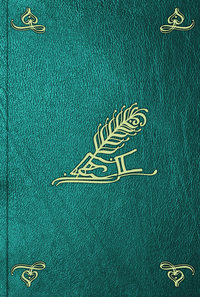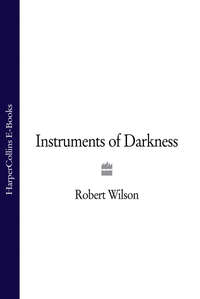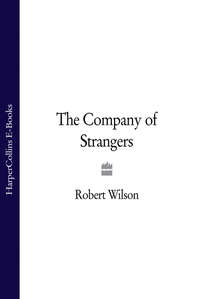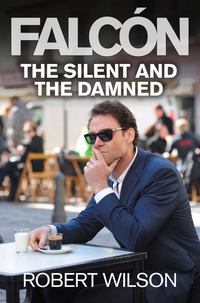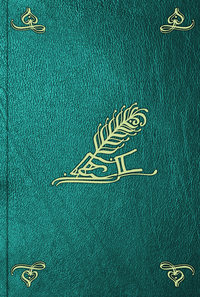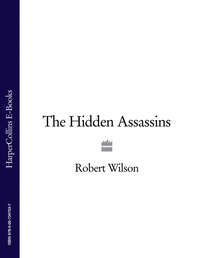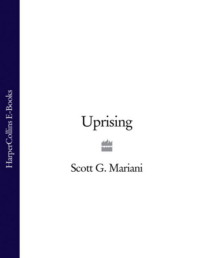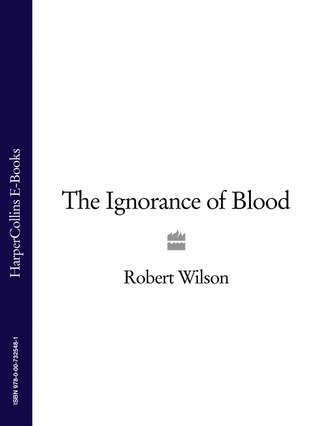
Полная версия
The Ignorance of Blood
Marisa watched him as he took the piece in, waiting for the banality of his comments. She had yet to meet the white man who could resist a little critique, and her warriors with their prize penises drew plenty of lewd admiration. What she registered in Falcón's face was not even a raised eyebrow, but a brief revulsion as he looked down the bodies.
‘So what happened to Margarita?’ he asked, switching to Marisa. ‘You reported her missing on 25th May 1998, and when the police came to check with you a month later you said she'd turned up again about a week after she'd disappeared.’
‘That was how much they cared,’ she said, reaching for a small half-smoked cigar which she relit. ‘They took down her details and I never heard from them again. They wouldn't take my calls, and when I went round to the station they just dismissed me, said she was with some boyfriend or other. If you're pretty and mulatto like her they just think you're some kind of fucking machine. I'm sure they did nothing.’
‘She did go to Madrid with a boyfriend, though, didn't she?’
‘They were pretty pleased about that when I told them.’
‘Where were your parents in all this?’ asked Falcón. ‘Margarita was still a kid.’
‘Dead. You see, they probably didn't put that in the report. My father died up north in Gijón in 1995. My mother died here in Seville in 1998 and two months later Margarita went missing. She was upset. That was why I was worried.’
‘Your father was Cuban?’
‘We came over here in 1992. It was a bad time in Cuba; Russian aid had dried up after the Berlin Wall came down in 1989. There's a large Cuban community in Gijón, so that's where we settled.’
‘How did your parents meet?’
‘My father had a club in Gijón. My mother was a flamenco dancer from Seville. She'd come up to perform at the annual Semana Negra fair. My father was a good salsa dancer and there's such a thing as Cuban flamenco, so they taught each other things and my mother made the mistake that a lot of other women made.’
‘So obviously she wasn't your natural mother?’
‘No, we don't know what happened to her. She was Cuban of Spanish descent, white and political. She disappeared soon after my sister was born in 1981.’
‘You were seven years old.’
‘It's not something I think about very much,’ said Marisa. ‘Things like that could happen in Cuba. My father never talked about it.’
‘So who looked after you?’
‘My father had girlfriends. Some were interested in us … others weren't.’
‘What did your father do in Cuba?’
‘He was somebody in the government. An official on the Sugar Board. Export,’ said Marisa. ‘I thought you wanted to talk about my sister, and I'm beginning to wonder why.’
‘I like to get people's family situation sorted out in my mind,’ said Falcón. ‘It doesn't sound like you had a normal life.’
‘We didn't, until my stepmother came along. She was a good woman. The caring type. She really looked after us. For the first time in our lives we were loved. She even looked after my father when he was dying.’
‘How was that?’
‘Lung cancer. Too many cigars,’ she said, waving the smoking stub in her hand. ‘He only married her after his diagnosis.’
Marisa blew a plume of smoke out into the rafters of the wooden roof. She felt she had to keep this thing going. Do one long stint with this new inspector jefe and then maybe he'd leave her alone.
‘What did you do after your father died?’ asked Falcón.
‘We moved down here. My mother couldn't stand the north. All that rain.’
‘What about her family?’
‘Her parents were dead. She had a brother in Málaga, but he didn't like black people very much. He didn't come to her wedding.’
‘How did your mother die?’
‘Heart attack,’ said Marisa, eyes shining at the memory of it.
‘Were you living here at the time?’
‘I was in Los Angeles.’
‘I'm sorry,’ said Falcón. ‘That must have been hard. She wasn't very old.’
‘Fifty-one.’
‘Did you see her before she died?’
‘Is that any of your business?’ she said, turning away, looking for an ashtray.
This cop was getting under her skin.
‘My mother died when I was five,’ said Falcón. ‘It doesn't matter whether you're five or fifty-five, it's not something you ever get over.’
Marisa turned back slowly; she'd never heard a Sevillano, let alone a cop, talk like this. Falcón was frowning at the floor.
‘So you came back from Los Angeles and you've been here ever since?’ he said.
‘I stayed for a year,’ said Marisa. ‘I thought I should look after my sister.’
‘And what happened?’
‘She left again. But she was eighteen this time so …’
‘And you haven't seen or heard from her since?’
There was a long silence in which Marisa's mind seemed to float off out of the room and Falcón thought for the first time that he was getting somewhere.
‘Señora Moreno?’ said Falcón.
‘I haven't heard from her … no.’
‘Are you worried about her?’
She shrugged and for some reason Falcón didn't think he was going to believe what he heard next.
‘We weren't very close, which was why she left the first time without telling me.’
‘Is that right?’ said Falcón, locking eyes with her across the studio. ‘So what did you do when she left the second time?’
‘I finished the course I was doing at the Bella Artes, rented out my mother's apartment, which my sister and I had inherited…’
‘Is that where you live now, in Calle Hiniesta?’
‘And I went to Africa,’ she said, nodding. ‘Mali, Niger, Nigeria, Cameroon, the Congo, until it got too dangerous and then I went to Mozambique.’
‘What about the Touaregs … didn't you spend some time with them?’
Silence, as she registered that he'd heard that from someone else.
‘If you know all this, Inspector Jefe, why are you asking me?’
‘I know it, but hearing it from you arranges the furniture.’
‘I let you in here to talk about my sister.’
‘Who you're not close to.’
‘You seem to have expanded your interests since you started using up my work time.’
‘And then there was New York …?’
She grunted. Puffed on the cigar to get it going again.
‘You've been talking to Esteban, haven't you?’
‘How do you know?’
‘I lied to him about New York,’ she said. ‘I saw a movie about an artist starring Nick Nolte, and I assumed the role of his assistant. I've never been to New York.’
‘Did you lie to him about anything else?’
‘Probably. I had an image to live up to.’
‘An image?’
‘That's how most of the men I've spent any time with see women.’
‘You described Esteban Calderón as your lover to Inspector Jefe Zorrita.’
‘He was then … still is, kind of, although prison doesn't help,’ she said. ‘I'm sorry he killed his wife. He was always so controlled, you know, still passionate in the way Sevillanos are, but a lawyer, too, and with a lawyer's mentality.’
‘So you think he did it?’
‘What I think doesn't matter. It's what Inspector Jefe Zorrita thinks that matters,’ she said, and something clicked in her mind. ‘That's it, I've got it now. It was your ex-wife that Esteban murdered. That's interesting.’
‘Is it?’
‘I don't know what you're doing here,’ she said, puffing on her cigar, appraising him anew.
‘Was your sister with a boyfriend when she left the second time?’
‘There was always a man involved with Margarita.’
‘Pretty girl?’
‘That … and the other thing.’
‘Sex?’
‘Not exactly,’ said Marisa, who went over to a small plans chest, opened a drawer and slapped a sheaf of photos down on the top. She was going to let him in, or rather let him think that she was opening up. ‘Take a look. I took these three weeks before her eighteenth birthday.’
Falcón flicked through the shots. A sadness lodged itself in his chest. It wasn't sex, despite the provocative nudity. Even when she was lying back, legs splayed, she had an innocence about her. An innocence that itched to be desecrated in the eyes of men. That was why Marisa had taken the shots and only Marisa could have taken them. Even in the most pornographic of poses Margarita never lost her childlike purity, whereas the viewer, or the voyeur, felt the beast rise up on its hind legs and dance on its furry hooves.
‘For a Sevillano, you don't say very much, Inspector Jefe.’
‘Nothing to add,’ he said, giving up on the shots halfway through, feeling the woman's intention and not flattered by it. ‘They do their work.’
‘You're the first person to see those.’
‘I'd like a shot of Margarita with some clothes on,’ he said, ‘so that we can begin to look for her.’
‘She's not lost any more,’ said Marisa. ‘She doesn't need to be found.’
‘I'm sure you'd like to hear from her, though, wouldn't you?’
Another shrug from Marisa, something very uneasy about her. She handed over a head-and-shoulders shot of her sister.
‘You used to go through Esteban's pockets,’ said Falcón, taking the photo. ‘Why did you do that? I mean, you're an artist, I can see that from the quality of this work. So you're curious, but not for the sort of crap you find in a man's pockets.’
‘My stepmother did the same thing when my father came back at seven in the morning. She hated herself for it but couldn't help it. She had to know, even though she already knew.’
‘That doesn't explain anything,’ said Falcón. ‘I could understand Inés wanting to go through his pockets, but you? What were you looking for? You knew he was married, and not very happily. What else was there?’
‘My mother came from a very conservative Sevillana family. You can see the type in her brother. And she got involved with a black man when she was forty-five years old and he repaid her by fucking everything that passed beneath his nose. Her bourgeois instinct –’
‘Hers, not yours. She wasn't your natural mother.’
‘We adored her.’
‘That's your only explanation?’
‘You amaze me, Inspector Jefe.’
‘Keys?’ he said, cutting in on her digression, eyebrows raised.
‘What?’
‘You were after his keys.’
‘That's why you amaze me,’ said Marisa, puffing on her chewed-over cigar butt, spitting out flakes of tobacco. ‘Zorrita told me, triumphantly no less, that he had a rock-solid case against Esteban for the murder of his wife, your ex, and here you are, trying to chip away at it for some reason that I don't quite understand.’
‘Did you get a key made to his apartment and have a good look around for yourself, or make a duplicate for somebody else so that they could?’
‘Look, Inspector Jefe, one time I found he had condoms which he never wore when he was with me,’ said Marisa. ‘Once a woman finds something like that, she keeps checking to see if there are any fewer.’
‘I've spoken to the governor. We're stopping your prison visits.’
‘Why?’
‘I'd have thought that would be a relief.’
‘Think what you like.’
Falcón nodded. Something caught his eye under the table. He knelt down and rolled it back towards him. It was a stained and polished wooden head. He inspected it under the light. Margarita's smooth unsophisticated face looked back at him, eyes closed. He ran a thumb over the jagged edge of her neck where the chain saw had bitten into the wood.
‘What happened here?’ asked Falcón.
‘A change of artistic vision,’ she said.
Falcón went to the door, feeling that the first phase of his work was done. He handed her the head.
‘Too perfect?’ he asked. ‘Or not the point?’
Marisa listened to his feet on the metal stairway and looked down at the carved features of her sister's face. She ran her fingers over the eyelids, nose and mouth. Her arm, bearing the full weight of the head, trembled. She put it down, found her mobile on the work bench and made a call.
The cop made her nervous, but she was also surprised to find that she did not dislike him. And there were very few men that Marisa liked, not many of them were white, and none of them were policemen.
Leonid Revnik hadn't moved. He'd cleared his henchmen out of the room and they'd got a technician in to fix the air-con. He was taking a drink from the half-bottle of vodka that was still left in Vasili Lukyanov's freezer. Viktor Belenki hadn't called him back. He had to remind himself to relax because he kept coming out of his thoughts to find his biceps tight in his shirt and his pectorals clenched. The land-line phone on the desk rang. He looked at it suspiciously; nobody used these things any more. He picked it up, spoke in Russian without thinking. A woman's voice answered in the same language and asked to speak to Vasili Lukyanov.
‘Who is this?’ he asked, hearing a strange accent.
‘My name is Marisa Moreno. I've tried calling Vasili on his mobile but there's no answer. This is the only other number he gave me.’
The Cuban woman. Rita's sister.
‘Vasili isn't here. Maybe I can help; I'm his boss,’ said Revnik. ‘If you want to leave a message, I'll make sure he gets it.’
‘He told me I should call him if I had any trouble.’
‘And what's happened?’ asked Revnik.
‘A homicide cop called Inspector Jefe Javier Falcón came round to my workshop and started asking questions about my sister, Margarita.’
That name, Falcón, again.
‘What did he want with her?’
‘He said he was going to find her.’
‘And what did you say?’
‘I told him she didn't need to be found.’
‘That's good,’ said Revnik. ‘Have you spoken to anybody else about this?’
‘I left a message on Nikita's phone.’
‘Sokolov?’ he asked, barely able to control his rage at having to pronounce another traitor's name.
‘Yes.’
‘You did the right thing,’ said Revnik. ‘We'll handle it. Don't worry.’
5
Calle Bustos Tavera, Seville – Friday, 15th September 2006, 15.50 hrs
There were two people in the world for whom Falcón would drop everything. One was Consuelo Jiménez and the other was Yacoub Diouri. Ever since he'd tracked down Yacoub four years ago he'd become the younger brother Falcón had never had. Because of Yacoub's own complicated past he'd had a special understanding of the complexities of the family horrors that had led to Falcón's complete mental breakdown back in 2001. In gradually revealing themselves to each other, Yacoub had become synonymous with the reassertion of sanity in Falcón's mind. Now, in the wake of the Seville bombing, he was even more than a friend and brother. He had become Falcón's spy. The Spanish intelligence agency, the CNI, in their sudden, desperate need for agents in the Arab countries nearest their borders, had researched the special relationship between Falcón and Yacoub Diouri. Having seen other Western intelligence agencies fail in their bid to recruit Yacoub, they'd used Falcón to bring him into their fold.
It was for this reason that, when Falcón received a text from Yacoub Diouri as he stood in the courtyard outside Marisa's studio, he went immediately in search of a public telephone. They hadn't spoken since the short break in Essaouira last month. Their only communication had been on ‘business’, via the intelligence service's encrypted website. The CNI had insisted on zero physical contact with Yacoub since he'd successfully penetrated the radical Moroccan Islamic Combatant Group, the GICM, in the days after the Seville bombing. It was this group which had been storing a hundred kilos of the high explosive, hexogen, in the basement mosque in a residential quarter of Seville. Yacoub had found out how that hexogen was going to be used, and in doing so the CNI were concerned that his cover had been blown. There had been some tense days in Paris when they thought that their new agent might be assassinated. Their fears had been groundless. Yacoub returned to Rabat, but the CNI were still so nervous that the only contact they'd allowed was on Falcón's August holiday, which had been arranged in April, two months before the recruitment of Yacoub Diouri.
It took him a while to find a public phone. Falcón understood from the text, which they'd arranged between themselves in Essaouira, that this was to be a private conversation and he should not to use his home phone or mobile to make the call.
‘I'm in Madrid,’ said Yacoub, with a quiver in his voice.
‘You sound nervous.’
‘We have to meet.’
‘When?’
‘Now … as soon as possible. I couldn't warn you before because … well, you know why.’
‘I'm not sure how I'm going to be able to get away at such short notice.’
‘I'm not asking you to do this for no reason at all, Javier. It's complicated and important. It's the most important thing that's happened so far.’
‘Is this business?’
‘It's business and it's personal.’
Falcón had something else ‘personal’ going on tonight. He was supposed to be having dinner with Consuelo, just the two of them. Another assignation in the gradual process of their coming together.
‘Are you talking about tonight?’ asked Falcón.
‘Earlier.’
‘It sounds like you want me to catch the next possible train.’
‘That would be good,’ said Yacoub. ‘It's that important.’
‘I'll have to work up a plausible reason for…’
‘You're in the middle of an international investigation. There must be a hundred reasons for you to come to Madrid. Call me when you know which train you're on. I'll let you know where I'm going to be. And, Javier … don't tell anyone that you're coming to see me.’
It was strange how, even after all this time, there were still certain moments which demanded an immediate cigarette. He drove to the Santa Justa station, got caught in traffic and called Inspector Jefe Luis Zorrita, said he needed to talk to him about Marisa Moreno's evidence. Did he have some time this evening? Zorrita was surprised; the case was locked off. Falcón said he had other things to discuss as well. They arranged to meet as close to 7 p.m. as possible.
A thought came to him as he replayed Yacoub's conversation. He wondered if this ‘business and personal’ problem was related to Yacoub's homosexuality. Although Yacoub was a happily married man with two children, he had this other secret life which, to the radical Islamic GICM, would be unacceptable.
The traffic opened up. Falcón moved on, put a call through to his second-in-command, Inspector José Luis Ramírez, whose usual stolid pugnacity had given way to a mixture of anger and excitement after viewing the disks they'd found in Vasili Lukyanov's briefcase.
‘You won't believe this shit,’ he said. ‘A councillor with two girls at the same time. A town planner giving it to a teenager in the ass. A building inspector snorting cocaine off a black girl's tits. And that's the mild stuff. This will crack the Costa del Sol wide open, if it gets out.’
‘Don't let it. You know the rules. Only one computer in our department –’
‘Relax, Javier. It's all under control.’
‘I'm not coming back in today,’ said Falcón. ‘Am I going to see you tomorrow?’
‘Elvira's out. It's quiet here. I'll be here in the morning and I'll stay if you want me to, but I'd rather not.’
‘Let's see how it goes,’ said Falcón. ‘I hope you can have a nice weekend.’
‘Hold on a sec, the GRECO guy, Vicente Cortés, was in here earlier looking for you. He wanted to tell you that he's had a report about a Russian who was found up in the hills behind San Pedro de Alcántara, with a nine-millimetre bullet in the back of his head. Alexei Somebody. A big friend of the guy you found on the motorway with a steel rod through his heart. Mean anything?’
‘More to Cortés than to me,’ said Falcón, and hung up.
At the Santa Justa station, Falcón found that the next AVE to Madrid was at 16.30, which would put him there just in time for his meeting with Inspector Jefe Zorrita. He called Yacoub on a phone in the station, trying to work out when he could get back to Seville and whether it would still be possible to make it to Consuelo's for dinner. Wanting that. Needing that. Even though progress was slow.
‘See Zorrita,’ said Yacoub. ‘I'll let you know where to go afterwards.’
Falcón ate something unmemorable, drank a beer, sunk a café solo and boarded the train. He wanted to sleep but there was too much brain interference. A woman sitting opposite him was talking to her daughter on her mobile. She was getting remarried and her daughter wasn't happy about it. Complicated lives, getting more complicated by the minute.
The prison governor called to say that Esteban Calderón had put in a request to see a psychologist.
The train slashed through the brown, parched plains of northern Andalucía.
Where had the rain gone?
‘He won't see the prison psychologist,’ said the governor. ‘He talks about this woman you know, but he can't remember her name.’
‘Alicia Aguado,’ said Falcón.
‘You're not the investigating officer in Señor Calderón's case, are you?’
‘No, but I'm seeing the officer who is this evening. I'll make sure he contacts you.’
He hung up. The woman opposite had finished speaking to her daughter. She spun the mobile on the table with a long, painted nail. She looked up. The sort of woman who always knows when she's under observation. Dangerous, save-my-life eyes, thought Falcón. The daughter was right to be concerned.
Up since before three and still not even lethargic. He closed his eyes to the dangerous ones opposite, but never reached below that confused state on the edge of oblivion. Now that he was worried he might not see her this evening, Consuelo surfaced in his mind. They'd first met five years ago when she'd been the prime suspect in the murder of her husband, the restaurateur Raúl Jiménez. A year later they'd met again and had a fling. Falcón had been hurt when she broke it off, but, as he'd recently discovered, Consuelo had had her own problems, which had sent her to the consulting rooms of the blind clinical psychologist, Alicia Aguado. Now, for the last three months, they'd been trying again. He could tell she was happier. She was easing him into her life gradually: only seeing him at weekends and quite often in family situations, with her sister and the children. He didn't mind that. His work had been punishing. Consuelo, too, was expanding the restaurant business left to her by Raúl Jiménez. Falcón enjoyed the feeling of belonging that he got from sitting at her family table. He wouldn't have minded more sex, but the food was always good, and in their moments alone they were getting on.
Thoughts of Consuelo always seemed to involve Yacoub. The two were inextricably linked in his mind. The one had led to the other. Falcón and Consuelo had first been drawn together by their fascination with the fate of Raúl Jiménez's youngest son from his first marriage, Arturo, who'd vanished in the mid 1960s never to be seen again. The boy had been kidnapped by a Moroccan businessman as an act of revenge against Raúl Jiménez, who had impregnated the businessman's twelve-year-old daughter and then fled back to Spain. After his brief affair with Consuelo, Falcón had set out to find Arturo, hoping that this would bring her back to him. It hadn't worked, but the reward had been to discover that Arturo had been brought up as one of the Moroccan businessman's sons and had even been given his family name to become Yacoub Diouri.
Their strange pasts: Falcón, who had been raised in Spain by Francisco Falcón only to find that his real father was a Moroccan artist, and Yacoub, born a Spaniard, forsaken by his father Raúl Jiménez, to be raised by his Moroccan abductor in Rabat, had been the bizarre foundation of their powerful friendship. And for the first time, perhaps as a result of his exhausted state, Falcón found his mildly confused mind reflecting, within the emotional compression of these unusual events, on what had happened to the child of the twelve-year-old daughter who'd been impregnated by Raúl Jiménez. He must ask Yacoub.


